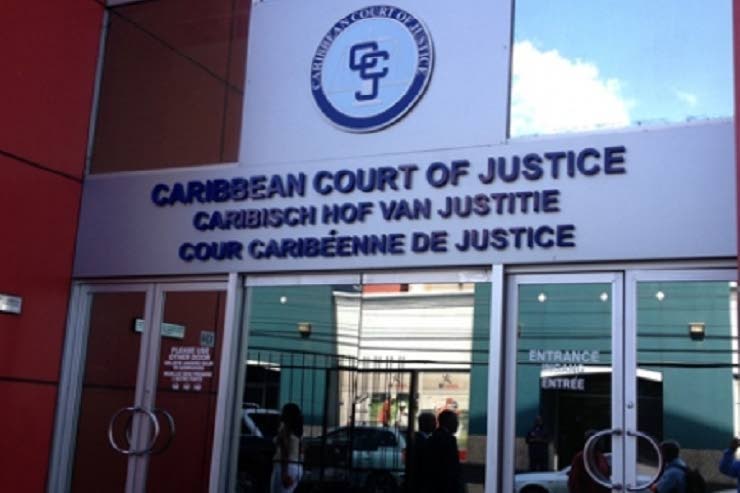Belize grilled on brown sugar 'impropriety' claims at CCJ

WITH the regional market for brown sugar very competitive, if trade tariffs are properly applied they will drive prices down. That's the contention of a Central American producer.
But Belize has accused Trinidad and Tobago of failing to apply the common external tariff (CET) tax on brown sugar imported from outside the region from November 2018-June 2020.
Over two days, the Caribbean Court of Justice (CCJ) is hearing a complaint by Belize claiming TT breached the Revised Treaty of Chaguaramas by failing to apply the CET of 40 per cent on imports of brown sugar from Guatemala and Honduras.
The CET is a single tariff rate agreed to by all members of Caricom on imports of a product from outside the Caribbean Community. Goods imported from third countries are subject to the duties listed in the CET, but goods imported from Caricom countries, certified to be of Caricom origin, do not generally attract these import duties. They enjoy duty-free status.
Belize also included St Kitts and Nevis in its lawsuit. However, in January those two countries settled the trade dispute over brown sugar, according to reports.
The Central American country has alleged that because of the treaty violation, Belize Sugar Industries Ltd (BSI) and Santander Sugar were losing sales to these countries. It was also alleged that the Caricom secretariat had failed to ensure TT imposed the CET.
Belize is seeking a ruling from the CCJ that requires the full application of the 40 per cent CET on brown sugar imported from non-Caricom sources.
In its lawsuit, Belize contended it had evidence to demonstrate that between November 2018 and June 2020, brown sugar produced outside the Caribbean region entered the market of TT without the CET being imposed.
On Tuesday, three of that country’s witnesses were grilled by the attorney representing the Government.
Those questioned were Andy Sutherland, acting director-general in the Directorate General for Foreign Trade of Belize and two executives from the ASR Group, the world’s largest refiner and marketer of cane sugar, Ruy Martinez and Mac McLachan.
The matter has been adjourned to Wednesday, when attorneys for Belize and the TT Government will advance their submissions.
Presiding over the matter are CCJ President Justice Adrian Saunders and Justices Jacob Wit, Winston Anderson, Maureen Rajnauth-Lee, Denys Barrow, Andrew Burgess, and Peter Jamadar.
Representing Belize are attorneys Andrew Marshalleck, SC, and Samantha Matute-Tucker. Terrence Bharath, Amrita Ramsook, Coreen Findley and Sasha Sukhram are representing TT.
In his testimony, Sutherland and Martinez disagreed with Bharath's suggestions that he had zero evidence to prove that CET was not charged for brown sugar coming from Guatemala and Honduras. They were grilled about the evidence they supplied from the Sugar Association of the Caribbean (SAC) on the tonnage of brown sugar imported in the region.
Sutherland denied the lawsuit was an attempt to get information on TT’s brown-sugar imports.
In answer to a suggestion by Bharath, who asked if Belize was accusing the Government of impropriety by not collecting CET, he said, “It doesn’t have to fall on the Government. There could be actors involved in the process but it does give rise to situations where the CET may not have been paid.”
Martinez also defended his evidence, saying the figures he gave the court were factual and guided through the different customs agencies of origin.
Including declarations which Belize is seeking at the CCJ, it also wants an order directing the secretary general of Caricom “to urgently complete the monitoring mechanism that is designed to monitor the requests for imports of sugar into the Caribbean Single Market, and to place the same before the COTED (Caricom's Council for Trade and Economic Development) for its consideration and approval.”


Comments
"Belize grilled on brown sugar ‘impropriety’ claims at CCJ"